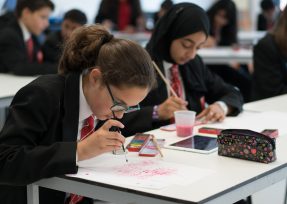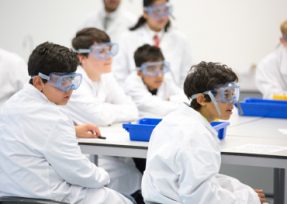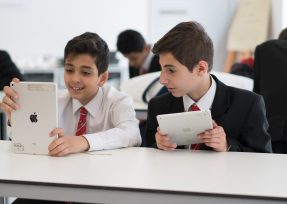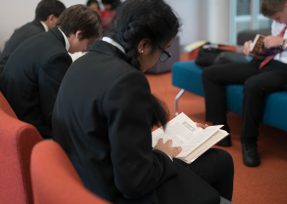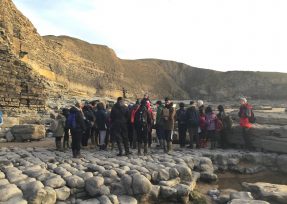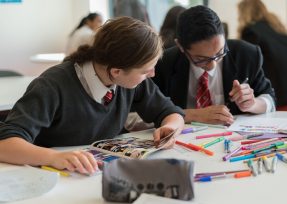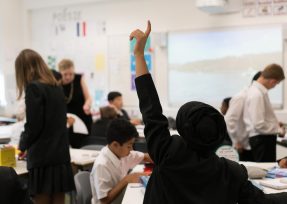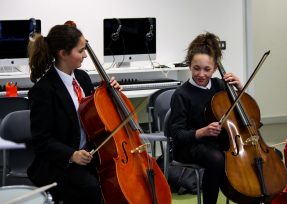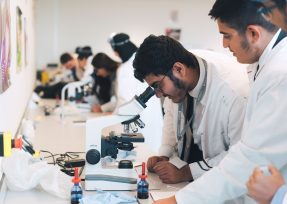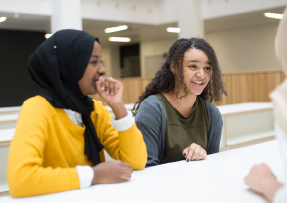Mathematics
Mathematics
At University of Birmingham School we have developed a course that aims to provide our pupils with time to be curious and to explore individual topics in depth.
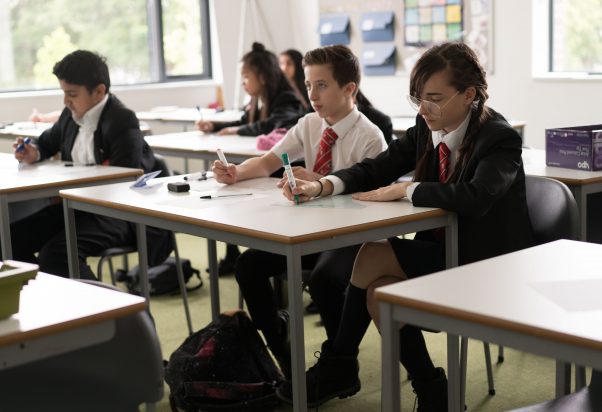
Course Description.
Mathematics is a creative and highly interconnected discipline that has been developed over centuries, providing the solution to some of history’s most intriguing problems. It is essential to everyday life, critical to science, technology and engineering, and necessary for financial literacy and most forms of employment.
Pupils need to be able to move fluently between each distinct topic, making rich connections across mathematical ideas to develop fluency, mathematical reasoning and competence in solving increasingly sophisticated problems. Pupils need to become fluent in the key skills of mathematics through varied and frequent practice, need to show curiosity to reason mathematically and show persistence to solve problems by applying these skills.
At University of Birmingham School we have developed a course that aims to provide our pupils with time to be curious and to explore individual topics in depth. Pupils are encouraged to look at some individual project work once per half term exploring areas such as the Mathematics of Islamic Art, Egyptian Fractions and the History of Mathematics.
In year 7 pupils spend the first term continuing to develop their number theory through exploring prime numbers, negative numbers and enhancing their knowledge of fractions, decimals and percentages. The second term has a focus on collecting and representing data and then builds on this to explore probability. The final term brings together the number and data work and also introduces some geometry including scale drawing, construction and compass skills.
Year 8 begins with pupils recapping ratio and proportion and they then begin to explore where ratio and proportion occurs in similar shapes which then links to an introduction to trigonometry and Pythagoras’ theorem. The second term has a focus on algebra skills including solving equations and rearranging formula. Constructing equations from a scenario test pupils reasoning and problem solving skills. The topic is extended by constructing linear and non-linear graphs and understanding what the graphs represent. This topic is concluded by investigating rates of change through graphs and other real life contexts. In the final term of year 8 pupils study standard form and a formal introduction to indices for the first time in addition to some other GCSE topics such as direct and indirect proportion and calculating averages from tables of data.
In year 9 the pupils finalise their Key Stage 3 studies including new topics such as polygons and their angles, expanding products of two or more binomials, understanding simultaneous equations and their graphical solutions and cumulative frequency. Throughout the year the pupils will also study other topics in more depth, building on the introduction to trigonometry in year 8. Other key foundations such as solving algebraic equations; fractions, decimals and percentages; probability and standard form will all be recapped and extended during the year.
Key Information
Department
Mathematics
Subject Leader
Mrs G Pritty-Smith
Contact
Admissions enquiries
e: admissions@uobschool.org.uk